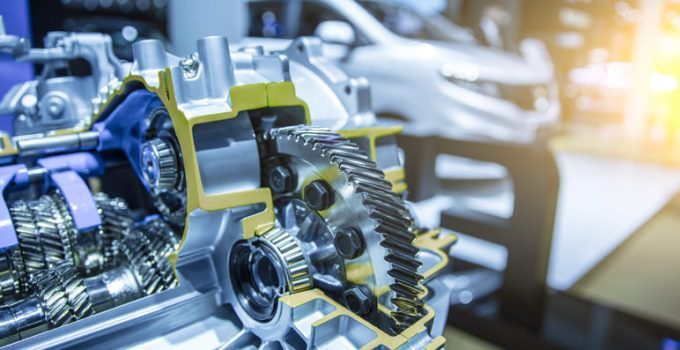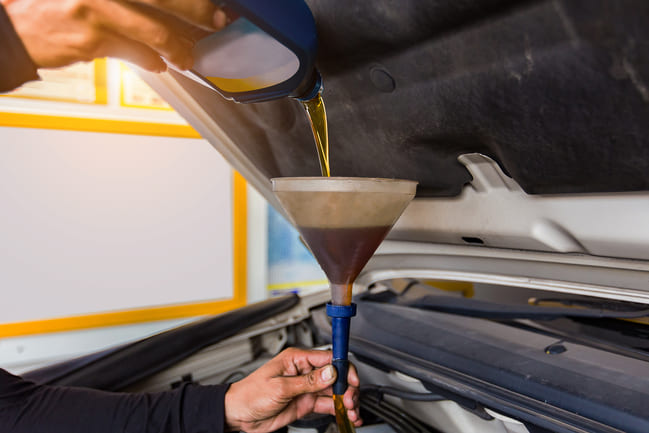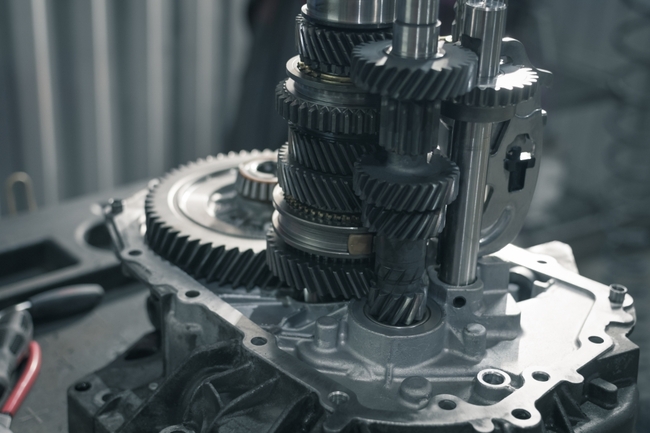
Repair work on the vehicle will sooner or later come up to every vehicle owner. Repairs or replacement processes on wearing parts are particularly typical here. Brake pads and wiper blades, but also spark plugs or light bulbs have to be replaced sooner or later. There's no way around it. But there are other vehicle components and systems that – with good care and regular maintenance – can work without problems for a particularly long time. This way you save a lot of money. A typical component that can lead to high costs during repair work is the gearbox, for example. It doesn't matter whether you have an automatic transmission or a manual transmission – if repair work is required here, it can be expensive. Below we look at the main defects in a transmission, the signs that you should definitely recognize and the repair work that can fix the damage.
Contents
What exactly is the actual task of the gearbox?
In the transmission of a car, the speed and the torque are translated by the combustion engine in order to then be transferred to the drive. It also reverses the direction of rotation when you want to drive your vehicle backwards. For this there is either the automatic transmission or the manual transmission. It doesn't matter which gearbox is installed in your vehicle: depending on the load and the mileage, this component can show signs of wear and need to be repaired. Here, either individual units of the transmission are exchanged, or the entire system is completely overhauled or replaced.
What are the typical signs that indicate a defect in the transmission?

There are certain symptoms that you should pay attention to. If, for example, the shift lever can only be moved jerkily or certain gears can hardly be engaged or jump back into neutral, then this is an indication that you should urgently drive to a workshop and have your vehicle's transmission diagnosed by specialists . But unusual noises while driving, as well as vibrations that occur while driving, or traces of leaks in transmission oil, as well as a burning smell of transmission oil, or a dark color of the same can be signs of a defect. If the transmission oil level is too low here, this can also be a reason why the gears cannot be engaged easily with the shift lever. In that case, you're in luck and a complete replacement of the gear oil has already fixed the problem.
Gearbox Repairs and Replacement
Initially, a specialist in a workshop should assess whether the defect in the transmission can be remedied by a simple repair or by a complete replacement of the system. In terms of price, repairing individual units would of course be much more beneficial for you. Installing a completely new gearbox can run into four figures, but this can be avoided if you react to signs of defects in good time.
In any case, make sure that you do not carry out repairs or replacement yourself. In order to be able to reach the gearbox, various components such as the car battery, the drive shafts, as well as the panels, torque arm and much more have to be dismantled. This is a complicated process. It is better to entrust it to specialized professionals of a workshop. In addition, a special transmission jack must be used when replacing, since this is a fairly heavy unit that a single worker can hardly lift alone. The adjacent components, such as the dual-mass flywheel or the clutch, can also be inspected and replaced if necessary when the transmission is repaired or replaced. Because a defect in the dual-mass flywheel can also result in damage to the gearbox.
What costs do I have to expect?

Unfortunately, it is a simple fact that next to the engine, the transmission is one of the most expensive systems in a car. It is not possible to say in general which costs you will incur. This always depends on the actual type of damage and the car model you are driving. So if you are lucky and the damage to the gearbox is fairly minor and access to the gearbox is also fairly easy, you can expect a cost of a few hundred euros. However, in the worst cases, a new gearbox has to be purchased and fitted. Then the bill can quickly rise to 3,000 euros or more. When repairing, a mechanic distinguishes between a partially overhauled and a completely overhauled gearbox. In the case of a partially overhauled transmission, only the defective wearing parts were replaced, while in a completely overhauled transmission all wearing parts were completely renewed. The amount of work involved can also vary greatly. In some cases the repair work can take only a few hours, in others up to ten hours or more. So the wages of the specialists also vary from a few hundred euros to almost a thousand euros
How can I increase the lifespan of the gearhead?
There is one golden rule here: always make sure to shift as smoothly as possible. Avoid an aggressive driving style and high revs. If you drive a car with a manual transmission, you should make sure that you fully depress the clutch when shifting. If you see signs of defects in your gearbox, as described above, then you shouldn't hesitate for long. Visit a workshop as soon as possible and have the gearbox thoroughly inspected by specialists. Only if a defect is detected in good time can action be taken quickly and further damage avoided. Changing the gear oil is often enough here. Have the gear oil level checked, this is sometimes also possible with an oil dipstick. If you drive a car with an automatic transmission, you can also opt for a transmission flush so that the transmission can run smoothly again.
The conclusion and a tip from CarTipsandmore
On the whole, keep your eyes and ears open to identify a possible defect in your vehicle's transmission in good time. A sign of a defect does not always mean the worst. Often there are only small wearing parts, the replacement of which is uncomplicated and relatively cheap. Changing the transmission oil can also prevent complications here. The important thing is not to delay an inspection of the transmission for too long. Turn to professionals at a workshop, opt for an inspection and avoid further devastating costs.
